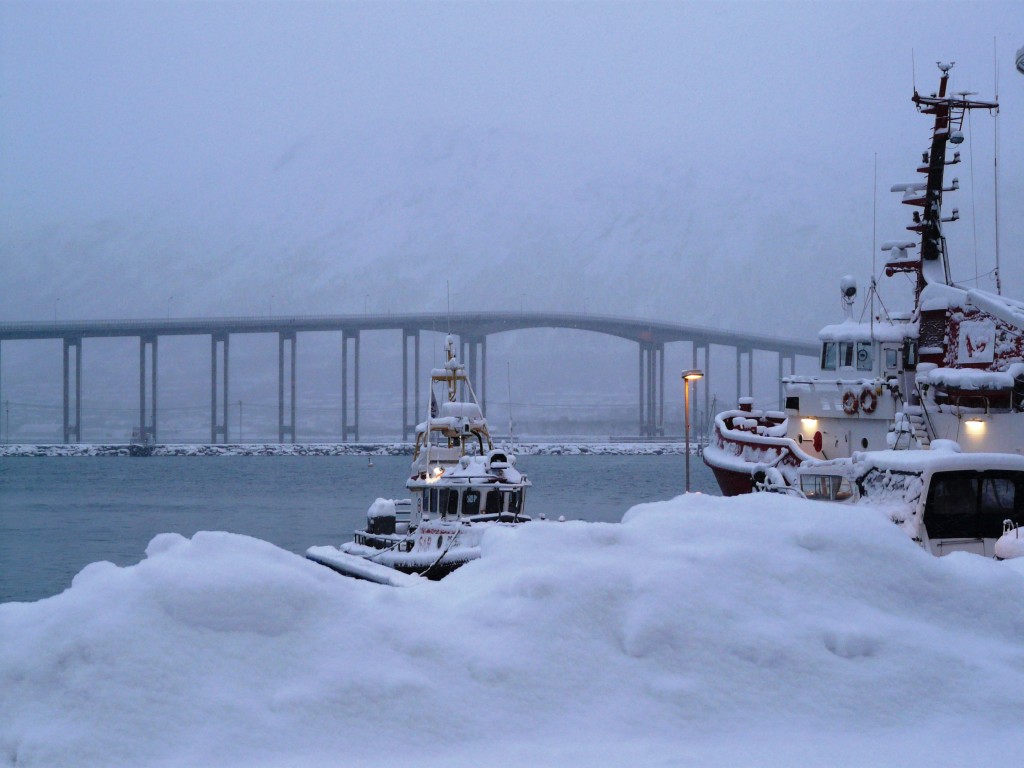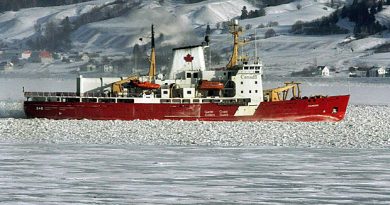Ice-Blog: Norway focuses on “Humans in the Arctic”
With the Annual “Arctic Frontiers” conference in Norway’s “Arctic capital” Tromsö looming large on the horizon from January 19th to 24th, I was interested to see that the conference theme of “Humans in the Arctic” was the subject of an event held by the North Norway European Office in collaboration with The Arctic Institute and Maritimt Forum Nord.
Those of us who are too far away to be able to drop in to seminars like this ahead of the big event can thank Kathrin Keil and Andreas Raspotnik from the Arctic Institute for keeping us up to date with a short report summarizing the event.
It is not surprising to see an increase in the number of conferences and seminars on Arctic development, given the climate-change related changes to the region which feature here on the Ice Blog. I have the sense that there is considerable competition between different Arctic players on all levels to become the focus of development activities.
In the event report, Raspotnik and Keil refer to the “Tromsö High North Cluster”. According to Anne Husebekk, the rector of the University of Tromso (UiT), as quoted in the paper, “The Tromsö High North Cluster can play a crucial role in providing the necessary knowledge for sustainable development in the Norwegian Arctic”. On my visits to Tromsö, I certainly had the feeling that people were working hard at this.

In my last blog post I mentioned the campaign underway to establish an EU Arctic Info Centre in Rovaniemi in Finland.
Understandably, all the Arctic states are keen to have a large chunk of the cake and stress their own expertise and infrastructure. But in an area like the Arctic, international cooperation is clearly essential.
Oil and gas drilling and increased shipping are usually the first issues that come to mind in connection with Arctic development, with all the safety, logistic and environmental challenges they bring with them. But the High North is also a key area for fishing, an activity which may not exactly benefit from extended industrial or commercial activity, not to mention the pressures from climate change. One point that attracted my attention in the conference report was a presentation by Trygve Myrvang, Managing Director of the Norwegian Fishermens Sales Organization, looking at the sustainability of fish stocks in the Norwegian North and factors affecting it. “Myrvang underlined the necessity of cooperation between the fishery and energy industry in the High North, both interested in the same offshore areas, say Raspotnik and Keil.” Indeed. Interesting times ahead. And plenty of scope for discussion at Arctic Frontiers. The Arctic Institute will also be holding a side event on “infrastructure-related challenges in the Arctic”. There is certainly no shortage of those. I hope I can be there to join the forum.





